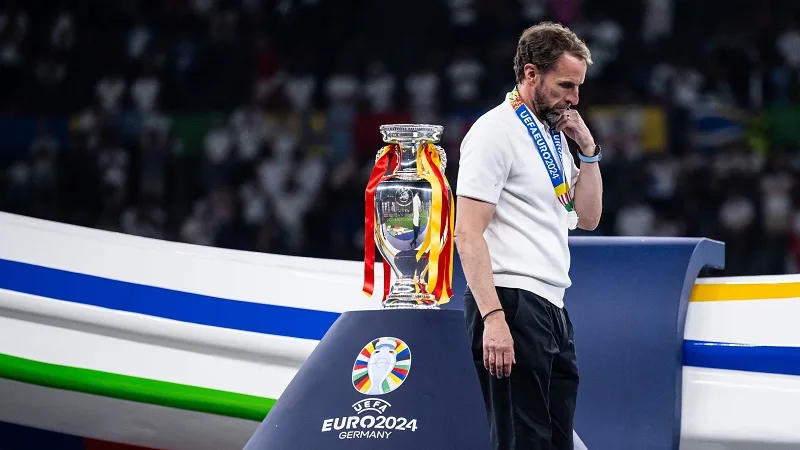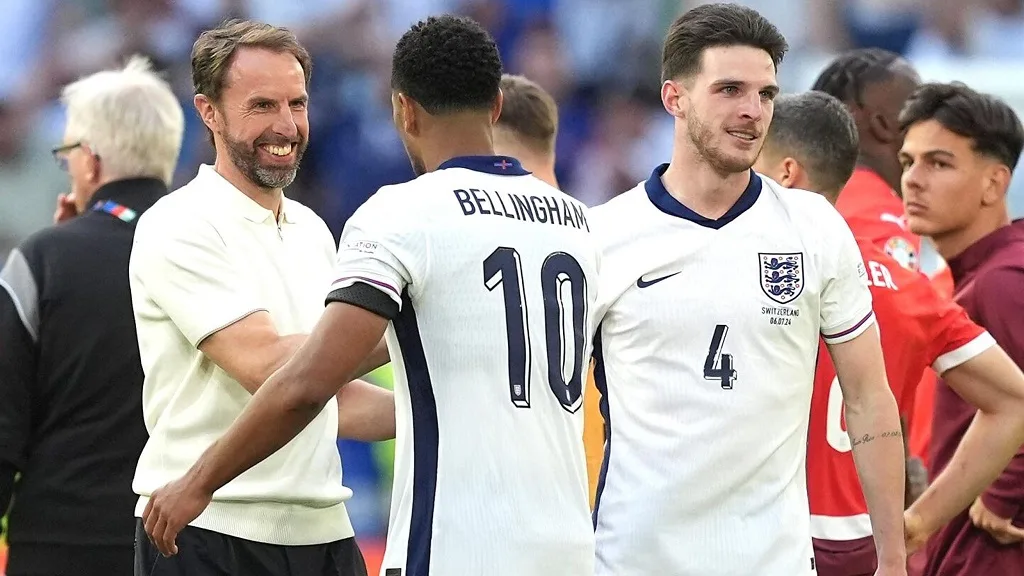What Now for England? Southgate & Kane Face the Same Old Pain

England’s national football team finds itself at a crossroads yet again. Gareth Southgate and Harry Kane, the leading figures of the squad, are confronted with familiar frustrations and unresolved challenges following another disheartening tournament exit. This article delves into the future prospects for Southgate and Kane, examining their roles and the broader implications for English football.
The Southgate Dilemma
Gareth Southgate has been a polarizing figure since his appointment as England manager. Despite leading the team to notable achievements, including a World Cup semi-final and a European Championship final, his tenure has been marked by critical shortcomings in crucial moments. Southgate’s tactical decisions have often been questioned, particularly his perceived conservatism in high-stakes matches. With the latest setback, the debate over his future has intensified. Should the Football Association (FA) seek a fresh approach or stick with a manager who has brought unprecedented stability?
Kane’s Captaincy: A Blessing or a Burden?
Harry Kane, England’s prolific striker and captain, embodies the team’s aspirations and frustrations. His leadership and scoring prowess are undeniable, but questions arise about whether the weight of captaincy impacts his performance during critical junctures. Kane’s commitment to the national team is unwavering, yet his record in pivotal games has been a subject of scrutiny. Balancing the responsibilities of captaincy with his role as the primary goal-scorer is a delicate task that could define the next phase of his career.
Tactical Evolution: Necessity or Overhaul?
England’s tactical setup under Southgate has been characterized by a structured defense and calculated offense. While this approach has yielded some success, it has also exposed limitations against elite opposition. The question now is whether a tactical evolution is required to enhance England’s competitive edge. Integrating more dynamic and creative strategies could unlock the full potential of a talented squad, but such changes carry risks. The balance between maintaining a solid defensive foundation and fostering attacking creativity will be crucial.
Building for the Future: Youth Integration
One of Southgate’s commendable achievements has been the integration of young talents into the national team. Players like Phil Foden, Bukayo Saka, and Jude Bellingham represent the future of English football. Continuing this trend is essential for sustained success. However, blending youth with experience requires careful management to ensure these players are nurtured without overwhelming pressure. The development pathways and support systems for emerging stars must be a focal point for the FA.

Mental Resilience: Overcoming Psychological Barriers
A recurring theme in England’s tournament performances has been the struggle to overcome psychological barriers. The mental resilience of players in high-pressure situations has often come under the spotlight. Addressing this aspect is as crucial as tactical and technical improvements. Implementing comprehensive mental health and sports psychology programs could provide the necessary support for players to perform optimally under pressure. Building a winning mentality is not just about skills on the pitch but also about mental fortitude.
The Road Ahead: Strategic Planning and Vision
The future of England’s national team hinges on strategic planning and a clear vision. The FA must outline a cohesive plan that encompasses managerial decisions, player development, and long-term objectives. Whether it involves continuing with Southgate or appointing a new manager, the decision must align with the broader goals for the team. Transparency, accountability, and a commitment to progress will be key in navigating the path forward. The journey ahead is challenging, but with the right strategies, England can aspire to break free from the cycle of near-misses.
In conclusion, the fate of Gareth Southgate and Harry Kane is intertwined with the aspirations of English football. Evaluating their roles and making informed decisions will be pivotal in shaping the future trajectory of the national team. England must learn from past experiences, embrace change where necessary, and foster a culture of resilience and excellence.




